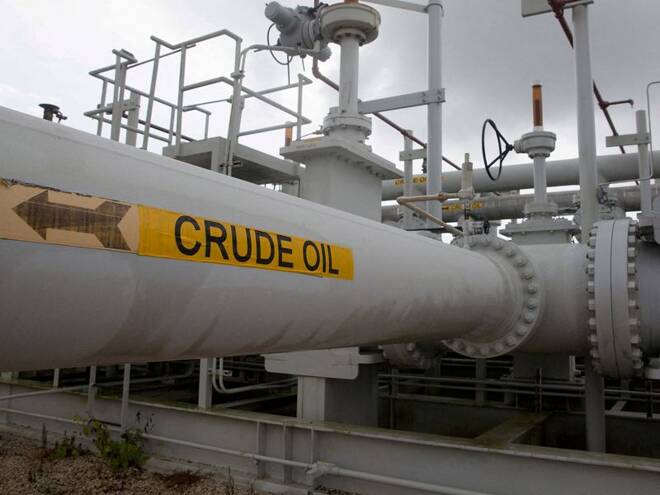Advertisement
Advertisement
U.S. Strategic Petroleum Reserve drops to lowest level since 1987
By:
HOUSTON (Reuters) - The amount of crude oil in the U.S. Strategic Petroleum Reserve (SPR) dropped by 5 million barrels in the week to May 13, data from the U.S. Department of Energy showed.
HOUSTON (Reuters) -The amount of crude oil in the U.S. Strategic Petroleum Reserve (SPR) dropped by 5 million barrels in the week to May 13, data from the U.S. Department of Energy showed.
Stockpiles in the Strategic Petroleum Reserve (SPR) fell to 538 million barrels, the lowest since 1987.
About 3.9 million barrels of sour crude was released into the market, while about 1.1 million barrels of sweet crude was issued, according to the data.
President Joe Biden in March announced the largest release ever from the U.S. emergency oil reserve at 1 million barrels per day (bpd) of crude oil for six months from the reserve in an attempt to bring down gasoline prices that have soared during Russia’s war with Ukraine.
Before that, the United States had committed to release 30 million barrels of SPR oil in March and pledged in November to release 50 million barrels from SPR.
U.S. oil prices have surged nearly 25% to nearly $114 per barrel as markets worry about a supply crunch. Retail gasoline and diesel prices touched record highs this week as fuel demand rebounds to near pre-pandemic levels, while refining capacity has dropped.
The 180 million-barrel release is equivalent to about two days of global demand, and was the third time Washington had tapped the SPR in the six months prior.
Winners of the latest round of sales from the SPR include Valero Energy Corp, Motiva, Exxon Mobil, Shell, Phillips and Marathon Petroleum Corp.
At least three vessels carrying crude oil from U.S. emergency stockpiles sailed for Europe in April as refiners there scrambled to replace Russian crude supplies, according to U.S. Customs data, ship tracking, and an industry source.
(Reporting by Arathy Somasekhar in HoustonEditing by Chris Reese, Lisa Shumaker and Cynthia Osterman)
About the Author
Reuterscontributor
Reuters, the news and media division of Thomson Reuters, is the world’s largest international multimedia news provider reaching more than one billion people every day. Reuters provides trusted business, financial, national, and international news to professionals via Thomson Reuters desktops, the world's media organizations, and directly to consumers at Reuters.com and via Reuters TV. Learn more about Thomson Reuters products:
Advertisement
